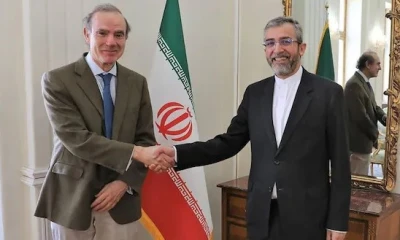In the wake of the tragic helicopter crash that claimed the lives of Iran’s Foreign Minister Hossein Amir-Abdollahian and President Ebrahim Raisi, seasoned nuclear negotiator Ali Bagheri has been appointed as the acting Foreign Minister. The announcement was made on Monday.
Ali Bagheri, 56, previously served as the deputy to the late Foreign Minister Amir-Abdollahian. He is known for his strong ties to Iran’s ultraconservative factions and his close association with Supreme Leader Ayatollah Ali Khamenei.
Throughout his career, Bagheri has been recognised for his composed demeanour, even while taking firm stances, particularly in denouncing Western intervention. He is deeply knowledgeable about Iran’s nuclear dossier, a contentious issue that has strained relations between Tehran and major global powers, especially Israel. A prominent critic of the 2015 nuclear agreement, Bagheri argued that the deal compromised Iran’s interests under the previous administration.
Born in 1967 in the northwest Tehran village of Kan, Bagheri comes from a politically active family. His father, a Shiite cleric, was a member of the Assembly of Experts, which is responsible for selecting the Supreme Leader. His uncle, Mohammed Reza Mahdavi Kani, also led this influential body at one point.
Bagheri’s political career began in the 1990s when he joined the Iranian Foreign Ministry. During this period, he formed a strong alliance with conservative figure Saeed Jalili. Bagheri served as Jalili’s deputy when Jalili was Iran’s chief nuclear negotiator, and the two worked closely on numerous critical issues.
After his stint with Jalili, Bagheri transitioned to the judiciary, serving as an assistant for international affairs and later as the secretary of the Human Rights Council.
In 2021, Bagheri returned to the diplomatic arena as the chief nuclear negotiator and deputy foreign minister for political affairs. His appointment as interim foreign minister comes at a challenging time, with nuclear negotiations currently at a standstill due to significant differences, particularly with the United States.
Photo Credit: AP

















